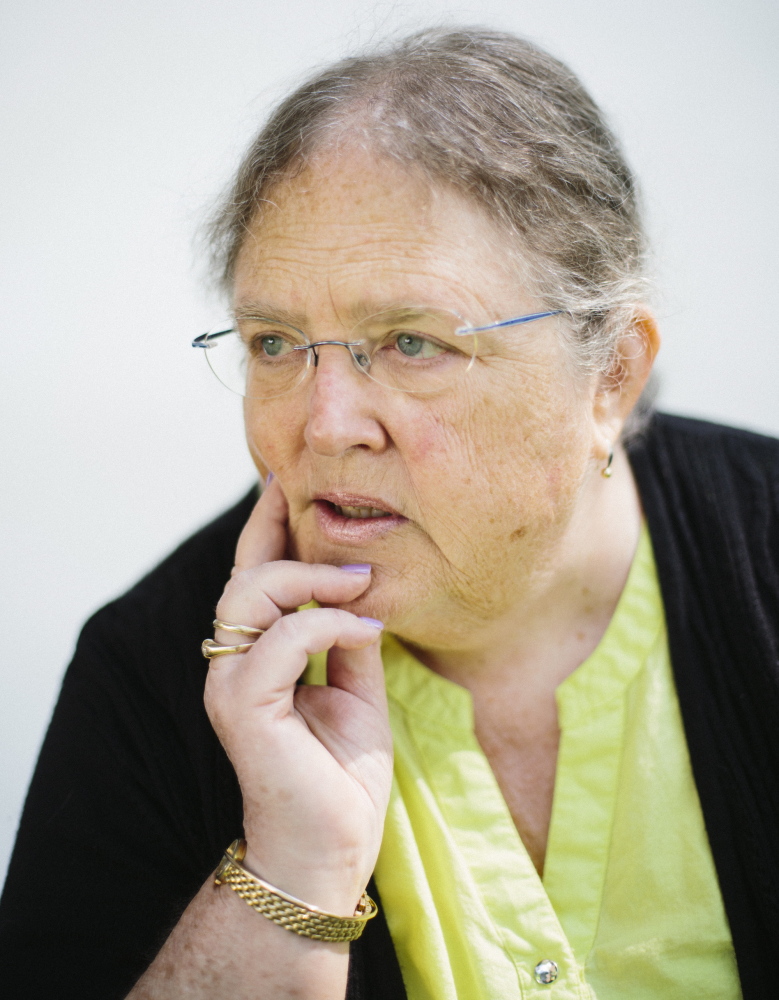It was the fall of 1979 when Lois Reckitt first walked into Family Crisis Services as its recently hired executive director.
She was met with a terrifying sight.
“The first client I saw, the first victim, was black and blue from head to toe,” said Reckitt, 70. “I swear to God, I don’t know how I didn’t spin around. But I didn’t.”
Instead, she stayed for 36 years, spending the time working tirelessly to grow an organization that helps mostly women who are victims of domestic violence.
From a staff of five when she came to lead the organization, Family Crisis Services employs 30 people today and runs a permanent, full-service shelter for victims of domestic violence in Portland. When people have no place to go, Family Crisis Services is their home, helping to counsel, house and provide support to people in their most vulnerable moments.
The clients that come to Family Crisis Services have endured abuse and fear that is unimaginable to many. Tormented by those who are supposed to love and care for them, Reckitt’s clients have chosen to abandon their previous lives.
Approaching the shelter alone takes enormous courage, she said.
For them, “it’s total fear,” Reckitt said. “Fear of retribution. Fear of consequences. Fear of not being able to hold their own. Fear for their kids.”
What her clients probably don’t know is that Reckitt, when she took the job so many years ago, was grappling with her own fear.
In the midst of her second marriage to a man, Reckitt came out to herself in 1976 upon realizing she is gay.
Even as a career activist used to facing down authority, it was her own sexual identity that struck in her the deepest of personal fears.
Public acceptance of homosexuality has grown in the last few years, cemented with a ruling June 26 by the U.S. Supreme Court that affirms the legality of same-sex marriage.
But back in 1976, homosexuality had only recently been removed from medical textbooks, where it had previously been classified as a psychological disorder. Gays and lesbians were still subject to violence, harassment and marginalization by mainstream America. As much as race or religion, sexual orientation had the potential to mark many as unemployable and unworthy.
“I was afraid I’d lose my job. I was afraid I’d lose my house,” Reckitt said.
But the board of directors recruiting her at Family Crisis Services knew about her sexual orientation and didn’t care. They hired her for her skills at managing staff and helping people, she said. In taking the job, Reckitt said she was finally without fear for her future.
“I’m not a particularly religious person,” she said. “But I do feel like I was put on this planet to do this work.”
Send questions/comments to the editors.




Success. Please wait for the page to reload. If the page does not reload within 5 seconds, please refresh the page.
Enter your email and password to access comments.
Hi, to comment on stories you must . This profile is in addition to your subscription and website login.
Already have a commenting profile? .
Invalid username/password.
Please check your email to confirm and complete your registration.
Only subscribers are eligible to post comments. Please subscribe or login first for digital access. Here’s why.
Use the form below to reset your password. When you've submitted your account email, we will send an email with a reset code.